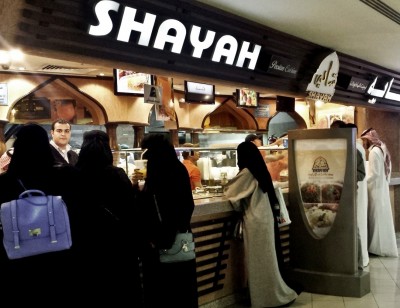
In a country with strict gender-segregation rules, unmarried men and women who mingle can face harassment or worse from religious police. Although Saudis have long cautiously challenged their society’s rigid traditions by using the Internet to flirt and chat, many say social-media networks give them a relatively safe place to pursue flings and even find potential spouses.
“All my friends are talking to boys on social media,” said a 23-year-old woman who described meeting a former boyfriend through Facebook.
Their relationship evolved into secret excursions in his vehicle and steamy encounters, she said. Because of the sensitivity of the topic, she and other people interviewed for this article spoke on the condition of anonymity.
Even though her mother has tried to introduce her to men in more traditional ways, she prefers courtship on social media. It’s more intimate, she said. “I don’t want to be pushed into a relationship with a stranger.”
Constrained by the state’s adherence to a particularly austere form of Sunni Islam, Saudis have long used stealthy tactics in pursuit of love and lust.
Before the Internet era, men would hang for-sale signs displaying their telephone numbers on their vehicles with the actual intention of propositioning female callers. More recently, Saudis used wireless Bluetooth technology to connect with people in their immediate vicinity.
But social-media networks offer far more opportunities and greater anonymity. Smartphones seem ubiquitous among almost all age groups and income levels. Surveys have shown that Saudi Arabia, a nation of 22 million citizens, has one of the world’s highest rates of Twitter and YouTube users.
Abdulrahman al-Shuqir, a sociologist at the Ministry of Higher Education who writes about the history of sexual relations in Saudi Arabia, said private communication channels available on social-media networks help foster meaningful relationships. That in turn, he said, has led to an apparent rise in physical encounters between unmarried people.
If caught engaging in unsanctioned romance, people — especially women — face social stigma and harsh punishment from families. They must also contend with religious police, who monitor not only malls and coffeehouses but also online forums.
Ahmad al-Ghamdi, a former chief of the religious police in the city of Mecca, said the force feels threatened by social media because “it makes it harder to supervise people.” He said he resigned from his position in protest of abuses committed by members of the religious police, which is tasked with enforcing Islamic law.
Many Saudis say the religious police have increasingly resorted to sting operations, blackmail and beatings in public.
“They’re getting crazier and crazier,” said Turki, 35, an employee at a government ministry who accused the religious police of using a woman to set him up on social media.
Despite being married, he began flirting with the mysterious woman on Snapchat a year ago and was later detained by the police after attempting to meet her, he said. His wife of nearly a decade and mother of his two young daughters eventually asked for a divorce over the incident, said Turki, who spoke on the condition that his last name not be used.
Saudis largely avoid Tinder and other formal dating apps popular in the West, preferring less conspicuous wooing techniques.
Find someone interesting on Instagram? That’s when a Saudi might try to grab that person’s attention by liking photographs and then sparking a private conversation in WhatsApp, an online-texting app.
Starting to feel comfortable with a virtual flame? That’s when Saudis might start exchanging pictures on Snapchat.
“You know you’re getting serious if you’re on Snapchat,” said Dima, 19, a university student in Riyadh, the capital.
At the food court of a popular mall in the capital, she donned the hair-concealing garment required of women here as she described juggling three men whom she met recently on Twitter and Instagram.
Dima has taken particular interest in one of them, who has invited her for a ride in his vehicle. But she expressed anxiety over what could happen if she did.
Her friend Sarah, an 18-year-old university classmate, encouraged her to consider it. “We shouldn’t have to feel ashamed of what is normal behavior everywhere else,” said Sarah, who glowed in eyeliner and blush. Both women spoke on the condition that only their first names be used.
Hassnaa al-Kenyeer, a writer on women’s issues who lives in Riyadh, said the empowerment of women is partly responsible for the popularity of online dating and the apparent rise in physical encounters that can result from it.
Women have made gradual yet significant advances in education and workforce participation, even though they are still forbidden from driving and require permission from a male guardian to do such things as obtain a passport and travel abroad.
“Women are more connected to the outside world, and they’re feeling more confident,” Kenyeer said.
She said that also has made the role of traditional matchmakers less important.
In the era of social networks, traditional matchmaking can seem superfluous to young Saudis such as Muhammad, 25, a resident of Riyadh who works at a government agency.
“Why would you pay money for a matchmaker,” he said, “when you could just meet girls online?”
WASHINGTON POST

Leave a Reply
You must be logged in to post a comment.